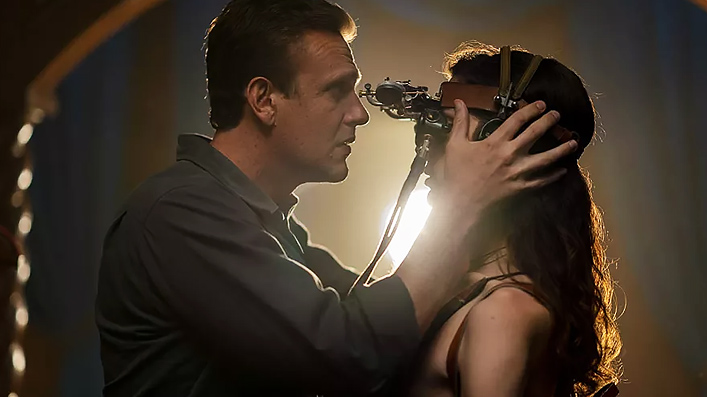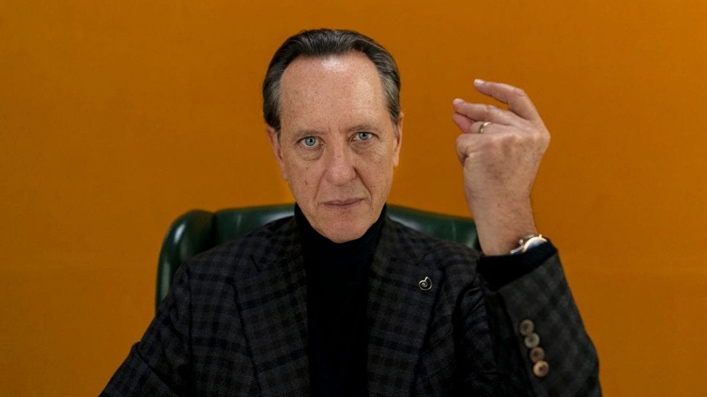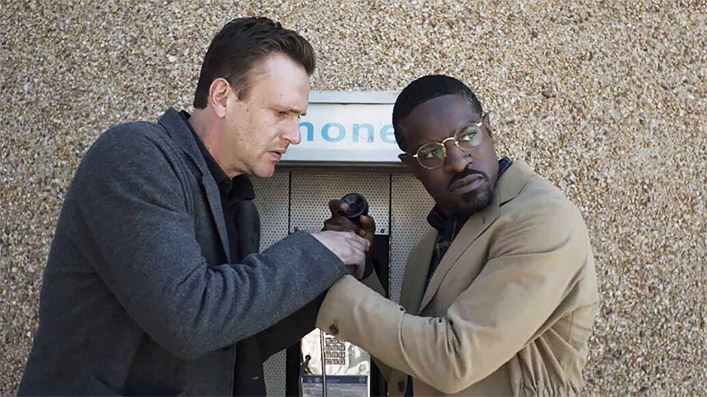The compelling but frustrating Dispatches From Elsewhere will keep you thinking

Amazon Prime Video‘s kooky series Dispatches From Elsewhere, from creator and star Jason Segel, was inspired by a crazy real-life ‘alternate reality game’. This show will keep rolling around in you mind, writes critic Luke Buckmaster.
There’s much to like about Dispatches From Elsewhere, though this self-consciously zany series from creator/writer Jason Segel (who also co-stars) is—to use the kind of parlance one comes to expect from it—existentially off-balance. Or even in an existential crisis. It is about participation; problem solving; experience. Is this the right story in the wrong medium? Should it have been a video game, or a board game, or a virtual reality experience, or an escape room? The core problem with this highly ambitious series is that you want to play around with it, but you’re stuck looking at a non-interactive two dimensional screen projecting a predetermined narrative.
See also
* All new movies & series on Prime Video
* All new streaming movies & series
I watched the first three episodes of Dispatches From Elsewhere early this month when the series landed on Prime Video. I enjoyed the kookiness of it but something felt off about the experience. Last weekend—which I mostly spent playing PS4 games Dreams and Control—I felt a weird desire to return to it, as if it too were a video game I felt the urge to play again.
The show’s bizarre real-life origins
This longing to jump in and navigate the show’s mysteries no doubt arises from its real-life origins, which bring to mind those well-worn words “stranger than fiction.” Segel was inspired by an initiative called The Jejune Institute, which involved more than 7000 players and occurred (for want of a better word) in San Francisco between 2008 and 2011. What exactly it was, or did, was described by this Vice article using a range of loose definitions including cult, alternate reality game, art installation, social movement and (my personal favourite) “living metafiction.”
Jejune offered imaginative real-world experiences that sound by all accounts like a cross between participating in a flash mob and grappling with the kind of mind-bending pranks that sent Michael Douglas through the wringer in David Fincher’s 1997 thriller The Game. In Dispatches From Elsewhere the ‘institute’ is depicted by Segel (who directs the first episode) as a kind of elaborate scavenger hunt, a handful of characters finding and deciphering clues while sometimes pausing to contemplate the bigger question of what if anything it all means.
Episode one opens with the surreal sight of Richard E. Grant in front of a blank orange background, staring into the lense and saying nothing for more than 20 seconds. I checked whether my internet connection had stalled—but no, the show was messing with me.

Finally, Grant—who plays Octavio Coleman, enigmatic leader of the Jejune Institute—addresses the audience, entering into a meta rant about how the introductory moments of every television series inevitably establish the protagonist, their daily routines, their hopes and desires, their challenges and hurdles, etcetera etcetera, before the story proper begins. He reckons such an introduction is a waste of time and pledges to do it in two minutes rather than twenty, so the show can “get on with what you came here for.”
A mild-mannered protagonist longs for life 2.0
This triggers a context-establishing introduction depicting Peter (Segel) going about his daily grind, returning to the same office cubicle and analysing the same algorithms for work, each day blurring into the next. The mild-mannered Peter lives a risk-free and passionless life. This is a familiar setup: like Walter Mitty, or Lester Burnham, or the Narrator in Fight Club, or a near-endless array of other examples, the protagonist longs for a life 2.0—something to free him from the shackles of a humdrum existence.
Peter finds this in the strangeness of the Jejune Institute, as do the others assigned to his team by the mysterious powers that be: Simone (Eve Lindley), Fredwynn (André Benjamin) and Janice (Sally Field). Sometimes their activities are simple and inconsequential: going to a phone booth and dancing in the rain, for instance. Others are more involved, requiring the discovery of certain locations containing certain objectives. The question of what this is all about is not lost on the viewer or the character. Some suggest it is something untoward: an elaborate form of advertising, perhaps, or maybe a kind of data mining.

Like the characters, the show searches for a purpose
The structure of Dispatches from Elsewhere is weirdly episodic and full of interesting, random thoughts; like the characters, it seems to search for a purpose. The feeling that we are watching a very random show (sometimes frustratingly so) is exacerbated by an anthology structure, most episodes pivoting to a different protagonist. At the start of each, Richard E. Grant beams in, suggesting not just a change in who is anchoring the narrative but a sort of virtual embodiment for the audience. His choice of words are important. “This is Peter. Think of him as you,” he says in the first episode. And in the second: “Simone is you, if you woke up every morning believing today would be the day you could finally be happy.”
The concept of virtual presence is explored in a more literal sense in the third episode, when Janice is given a VR headset that allows her to interact with a younger version of herself. This manifests as a kind of metaphysical mirror conversation, during which the reflection talks back, two incarnations of her character freed from temporal restraints, debating the virtues and vices of each other’s existence.
This is only one example of the daffy contemporary ideas littered throughout Segel’s script, which is ambitious but flaky: always conceptually interesting, and almost never dramatically satisfying. And so, as Dispatches from Elsewhere continues to roll around in my mind, I find myself returning to the original question: is this the right story in the wrong medium? Segel’s crowning achievement, perhaps, is to draw attention to the limitations of the very art form he’s working in. You want to play, but you’re condemned to watch.












